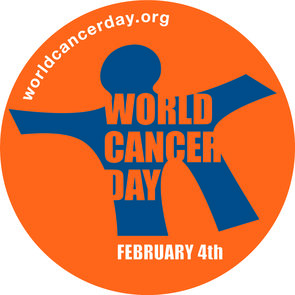Five Things You Didn’t Know About Breast Cancer | World Cancer Day
Today is World Cancer Day – an international initiative in the fight against cancer and a celebration of the significant advancements being made around the world. 
Cancer continues to take the lives of thousands of Canadians each year. Advancing cancer treatments in BC have been a big focus for RLCF this past year. Raising funds for cancer research foundations are important because it allows researchers to continue developing innovative treatments to save lives.
The early detection of cancer is also critical to it being successfully treated. We caught up with our friends at the Canadian Breast Cancer Foundation to share the top five things you didn’t know about breast cancer, in particular, a subtype called triple negative breast cancer.
Breast cancer continues to be the most common cancer diagnosis in Canadian women – with 1 in 4 cancer diagnoses being breast cancer. On average, 68 Canadian women will be diagnosed with breast cancer every day, and 14 will die from the disease. While breast cancer in men is rare, it is estimated that this year 220 new cases will be diagnosed in Canada, and that 60 men will die from the disease.
Triple negative breast cancer is a subtype of breast cancer. A diagnosis of triple negative breast cancer means that the three most common types of receptors are not present in the cancer tumor, so therapies commonly used to target these receptors are not effective.
Currently chemotherapy is the most effective option to treat triple negative breast cancer, but brings with it toxic side effects.
Triple negative breast cancer is more likely to affect younger women, African Americans, Hispanics, and/or those with a BRCA1 gene mutation.
Take for example, 27-year-old Montana McLean, who was diagnosed with breast cancer just two days after her wedding. Montana was regularly screened for breast cancer because she is a carrier of the BRCA1 gene mutation. It is estimated that women who have inherited a BRCA1 or BRCA2 mutation have a 40 – 85% chance of developing breast cancer and a 20 – 40% chance of developing ovarian cancer in their life time. Thankfully for Montana, it was the regular pre-screening and the early detection of her tumor that likely saved her life.
To read Montana’s full story, click here.
Triple negative breast cancer is an extremely complex and evolved cancer. Thanks to research conducted in British Columbia by Sam Aparicio and his team at the BC Cancer Agency, triple negative breast cancer is better understood as not one distinct single disease, but an extremely complex and evolved cancer with an unprecedented range of mutations at the time of diagnosis. This finding was published in the journal Nature. Without targeted therapies to treat triple negative breast cancer, the disease is more likely to spread and recur.
Researchers are focusing on new medications and therapies for triple negative breast cancer. In fact, a team of about 30 of Canada’s most accomplished breast cancer scientists are currently working on accelerating the pace for the development of three promising drug candidates and bringing them to clinical trials with advanced breast cancer patients across Canada. The new therapies would ideally have fewer side effects than conventional treatment and improve survival rates for women living with triple negative breast cancer.
We can’t stop now and must continue supporting this momentum that will give hope to women facing this difficult diagnosis. On Friday, February 26, 2016, the Canadian Breast Cancer Foundation will be hosting the 2nd annual Wild Lilies Gala, in support of critical breast cancer research, like triple negative breast cancer. To learn more about the Wild Lilies Gala please visit: wildliliesgala.com. Tickets are available online, and can be purchased here.
Help the Canadian Breast Cancer Foundation create a future without breast cancer by donating today: Click here to donate.
We have other great content, continue exploring below.